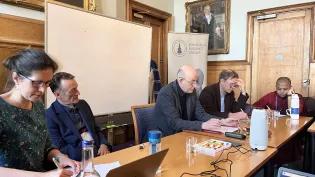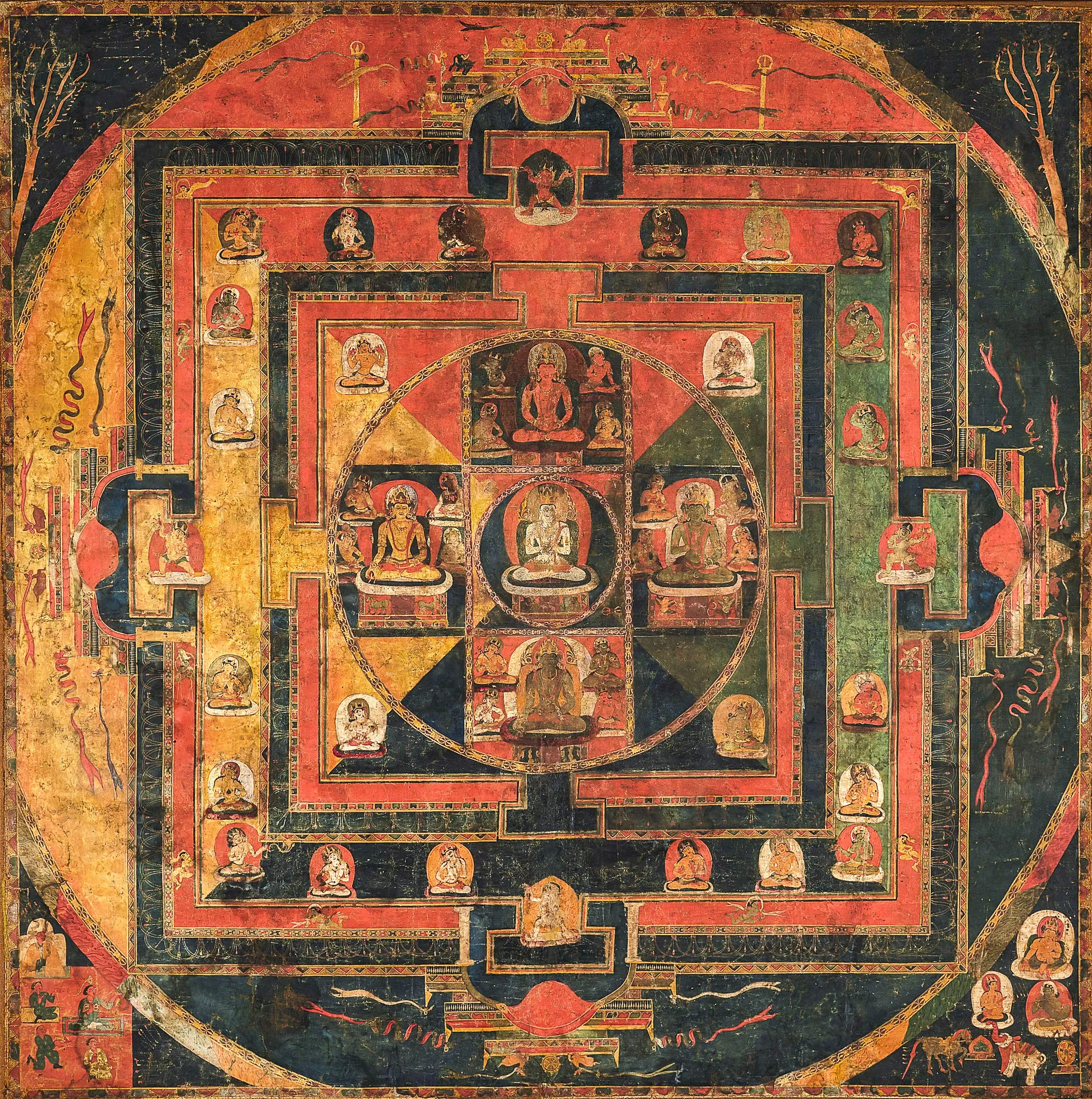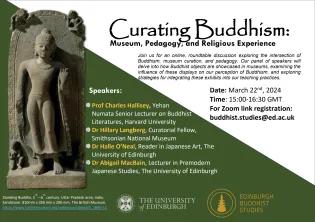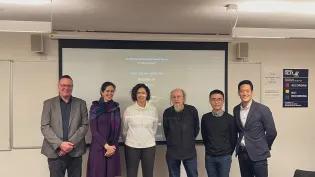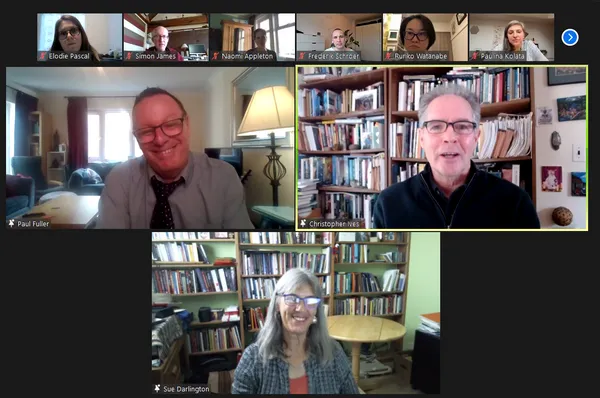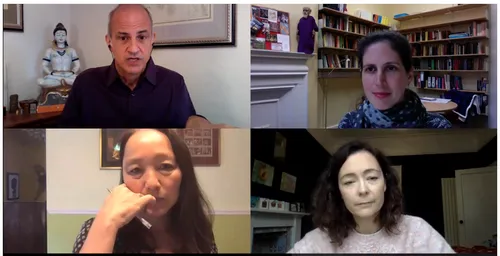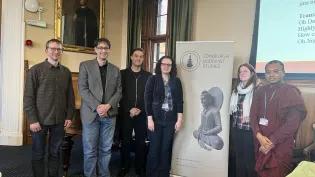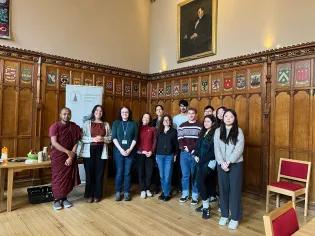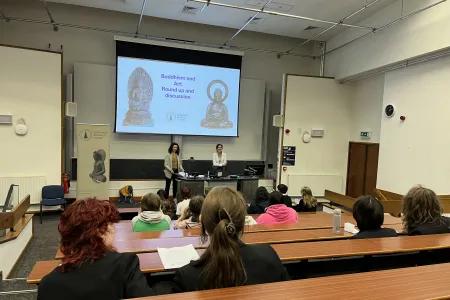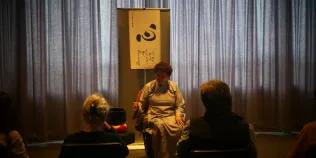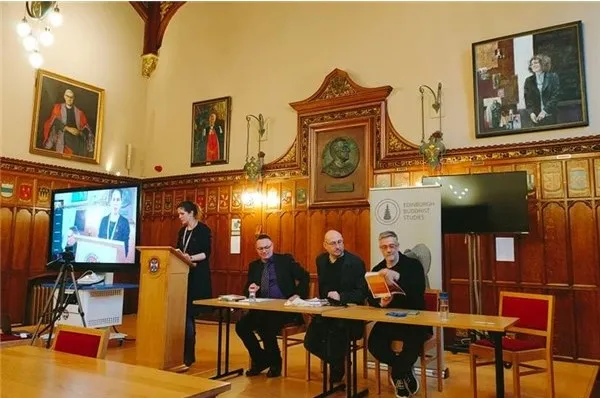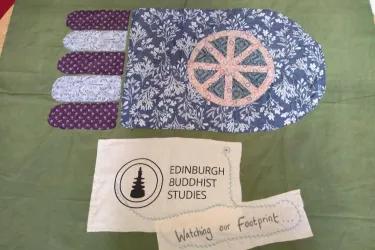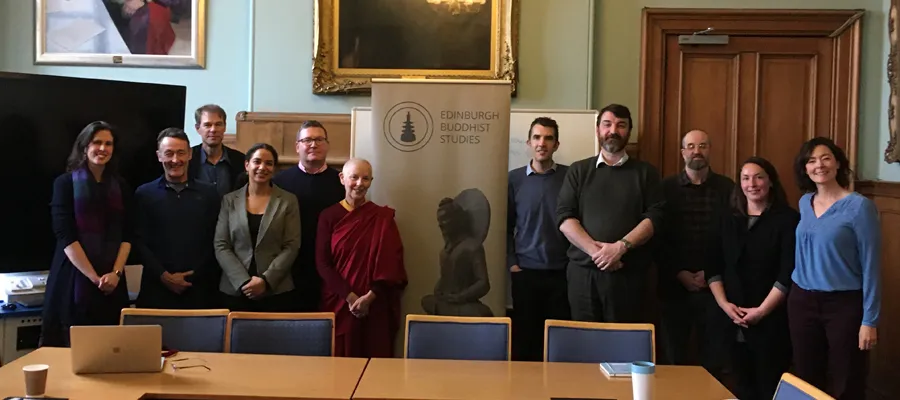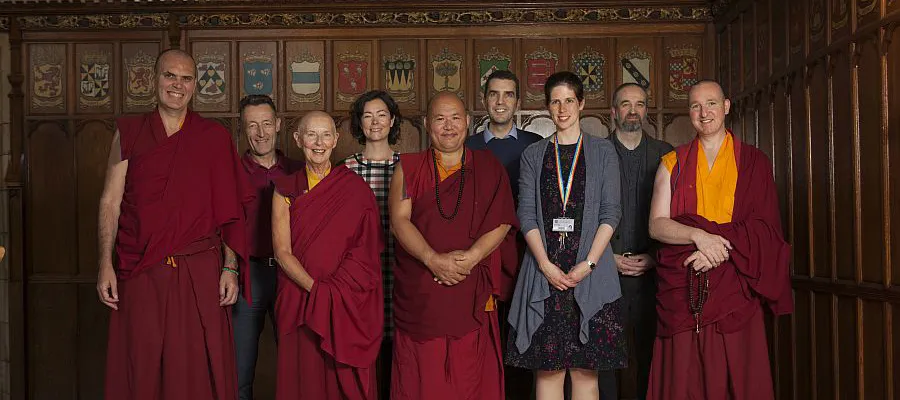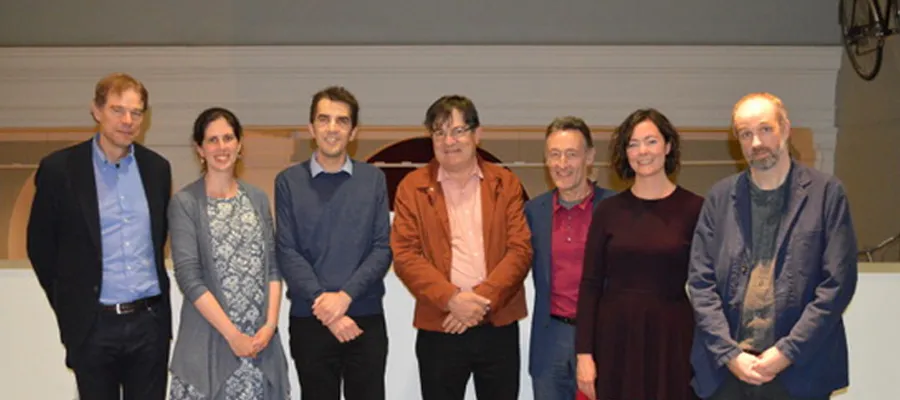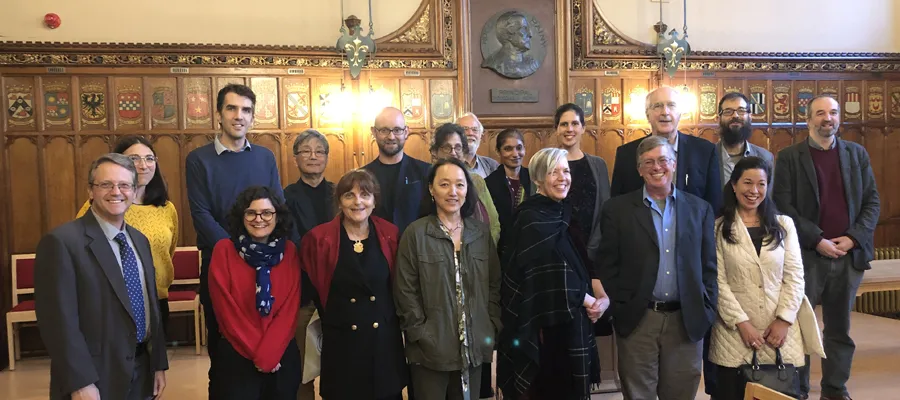Each year we invite a distinguished guest to give our annual Khyentse Lecture in Buddhist Studies. While they are with us, we also arrange other events such as panel discussions with broader themes.
2025: Ann Heirman (Ghent)
"Animals in Daily Monastic Life: between India and China"
Thursday 20th March 2025, 4.10-5.30pm, Martin Hall, New College (and hybrid via Zoom)
In addition to her lecture, we held two panel events during Prof Heirman's visit:
“Animals in Ancient Religious Contexts” panel discussion
Featuring Professor Naomi Appleton and Dr Suzanna Millar from the School of Divinity, Dr Yashaswini Chandra from Edinburgh College of Art, and special guest Professor Ann Heirman from Ghent University. A discussion of how animals feature in ancient texts (Hebrew, Sanskrit and Chinese) and visual culture.
Workshop: What is Vinaya and how should we study it?
This short workshop brought together scholars from Edinburgh and beyond, including our special guest Prof Ann Heirman from Ghent University, for a discussion of the Vinaya genre. Much more than a simple collection of rules and regulations for monastic life, vinaya has many implications for the study of Buddhist text, history and practice. Featuring reflections from Dr Yael Shiri (Bristol), Dr Upali Sraman (UoE Divinity), Dr Abigail MacBain (UoE Asian Studies) and Prof Naomi Appleton (UoE Divinity).
2024: Jörg B. Quenzer (Hamburg)
"Popular Commentaries on the Lotus Sūtra in Medieval Japan"
We also held a panel discussion on “Buddhism and Metaphor”
The panel, held from 2.15 to 3.30 pm, was led by Prof Joachim Gentz and featured Prof Quenzer alongside colleagues Professor Naomi Appleton, Dr Ian Astley, and Dr Upali Sraman from Edinburgh Buddhist Studies. The discussion explored metaphors' roles across Buddhist literature and delved into the intricacies of metaphor in Buddhist texts and practices with comparisons to the reflections on metaphors made by Daoism and Confucianism (Prof Gentz), metaphors in Buddhist translation (Prof Appleton), metaphors in Vinaya (Dr Sraman), and issues of interpreting metaphors (Dr Astley).



